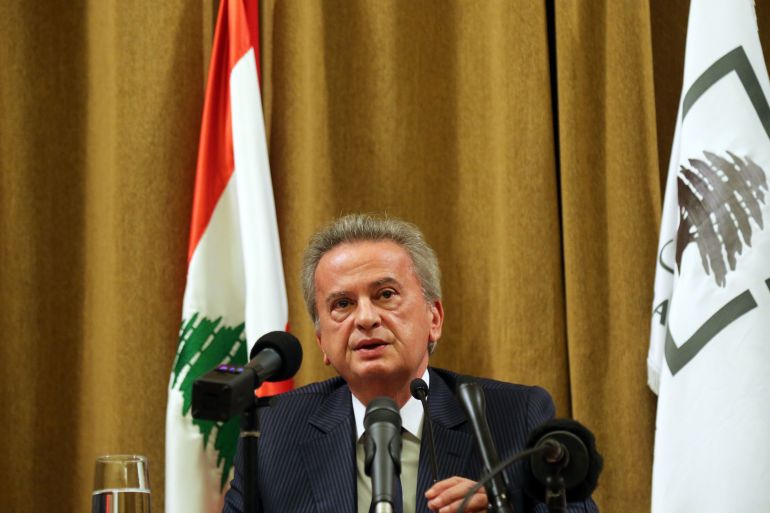Lebanon central banker probed in money laundering investigation
The investigation revolves around money laundering and embezzling public funds in Lebanon between 2002 and 2021.

Lebanon’s central bank head is one of the targets in a joint money-laundering probe spearheaded by three European countries over the alleged embezzlement of more than $330 million.
Authorities in France, Germany and Luxembourg froze assets worth a total of 120 million euros ($132 million) on March 25 in an investigation involving five suspects, European Union officials said Wednesday.
Keep reading
list of 4 itemsLebanon: US dollar savers fear they’ll foot crisis bill
US plans to reroute $67m in aid towards Lebanon’s armed forces
Lebanon’s central bank chief Salameh slapped with travel ban
Riad Salameh is one of the suspects, a spokeswoman for Munich prosecutors told Bloomberg, declining to provide more details. Salameh’s office didn’t immediately reply to a request for comment
The investigation centers around money laundering and embezzling public funds in Lebanon between 2002 and 2021, Eurojust said. Five properties in Germany and France were seized as well as several bank accounts.
Salameh has already been under investigation in France, Switzerland and Lebanon, raising pressure on the once-celebrated veteran banker who’s been at the helm of the central bank, also known as Banque du Liban, since 1993. Swiss authorities are looking into allegations that he benefited from the sale of Lebanese Eurobonds held in the central bank’s portfolio, Bloomberg reported in early 2021.
Salameh has denied the allegations and has said they’re part of a media campaign to tarnish his image. His fortune was amassed during a previous career as a private banker at Merrill Lynch, he has said.
The central banker has been at the forefront of Lebanon’s worst financial crisis in decades as many partly blamed him for the economic collapse that wiped out people’s life-savings, triggered triple-digit inflation and plunged the middle class into poverty.